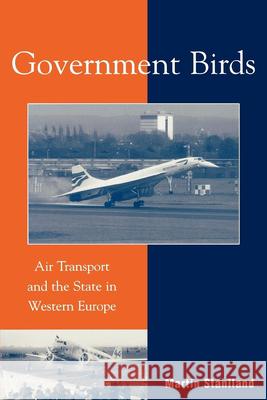Government Birds: Air Transport and the State in Western Europe » książka
Government Birds: Air Transport and the State in Western Europe
ISBN-13: 9780742501249 / Angielski / Miękka / 2003 / 328 str.
Usually described as 'state' industries, European airlines have been criticized as uncompetitive, overmanned, and subsidized. But this view begs the question of why and how the state became involved in air transport, as well as the question of whether airlines could have succeeded in Europe and elsewhere without government support. The first comparative study of the complicated history of relations between the state and the air transport industry in Europe, the book travels from the earliest scheduled flights down to the era of liberalization and privatization in the 1990s. Martin Staniland concentrates on four key countries-France, Germany, the Netherlands, and the United Kingdom-exploring both the sources of support for airlines in Europe and the reasons why public ownership lost favor as the industry expanded. In particular, he examines links between the airlines on the one hand and national aircraft builders and ministries concerned with defense, foreign policy, and colonial administration on the other hand. The author concludes by considering the crises and restructuring experienced by national airlines in the 1980s and 1990s, and by exploring the related political battles over liberalization and privatization.











